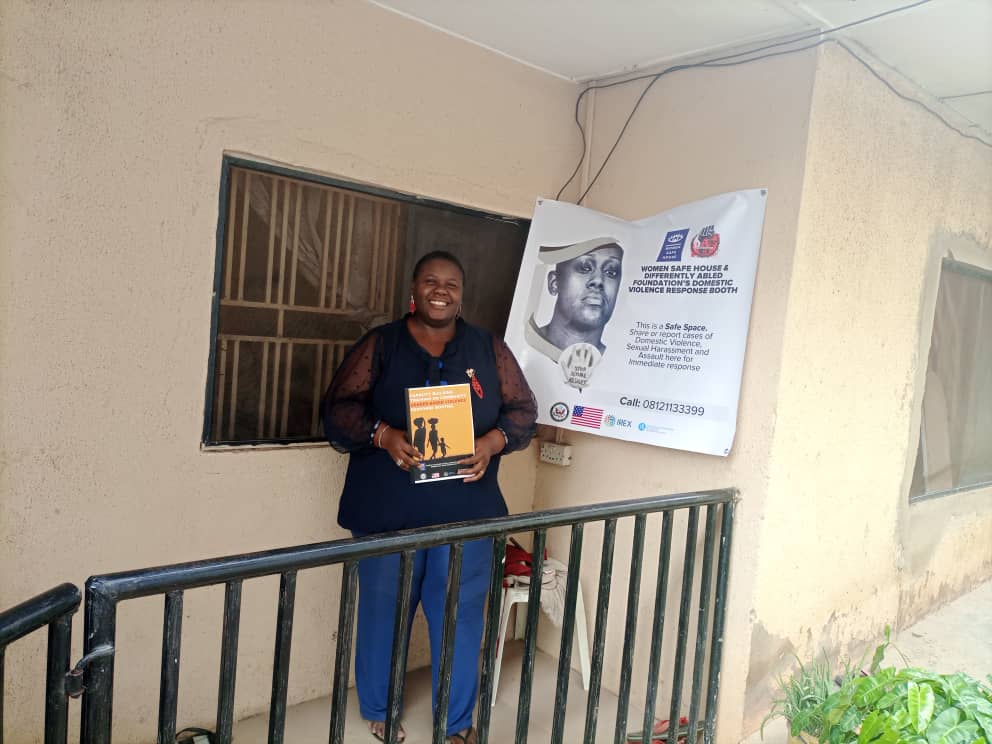Supporting community responses to gender-based violence

According to the UN, less than 1 in 10 women who seek help after experiencing violence turn to the police, and only a minority of cases of gender-based violence are ever formally reported to the police. In many cases, survivors look to their community for support.
Two 2019 Fellowship Alumnae partnered to address this issue and strengthen community responses to gender-based violence.
This experience has helped expand my personal and organization’s work, providing more support for women facing violence in local communities.”
Wuraoluwa Ayodele, 2019 Fellowship Alumna, Nigeria
Folajogun Victoria Akinlami runs a non-profit organization for people living with disabilities, and Wuraoluwa Soibi Ayodele is the founder of Women Safe House Sustenance Initiative and the Principal of Safe House Legal, a non-profit organization and law firm that provides a safe house environment, legal services, health care and economic empowerment to gender-based violence survivors. Together, they brought their expertise to advance peace in local Nigerian communities while also bringing interventions to women with disabilities.
Through a hybrid Leveraging Innovations in New Communities (LINC) project, Folajogun and Wuraoluwa organized a virtual three-day workshop, where each was able to facilitate sessions from different regions in Nigeria through video meetings. They trained community volunteers on best practices for combatting gender-based violence in remote areas.
Folajogun provided training materials from her organization, specifically focusing on the inclusion of women living with disabilities facing violence in local communities.
“It was an eye-opening event for me,” she said. “This goes to show that we have a lot of work to do when it comes to handling the abuses women living with disabilities face.”
Participants involved in the training were instructed to employ the “booth model” of GBV response. This model transforms existing structures in their community such as houses, offices, or stores into “booths,” or grassroots support centers for GBV survivors.
“The experience was engaging and absolutely fulfilling for me. I was able to bring to life my personal experiences with dealing with GBV survivors, trauma recovery and share valuable information on how appropriate interventions can get to them,” Wuraoluwa said. “This experience has helped expand my personal and organization’s work, providing more support for women facing violence in local communities.”
Written by Abbie Wade.
Next Story
Edem Dorothy Ossai
2016 Fellowship Alumna, Nigeria